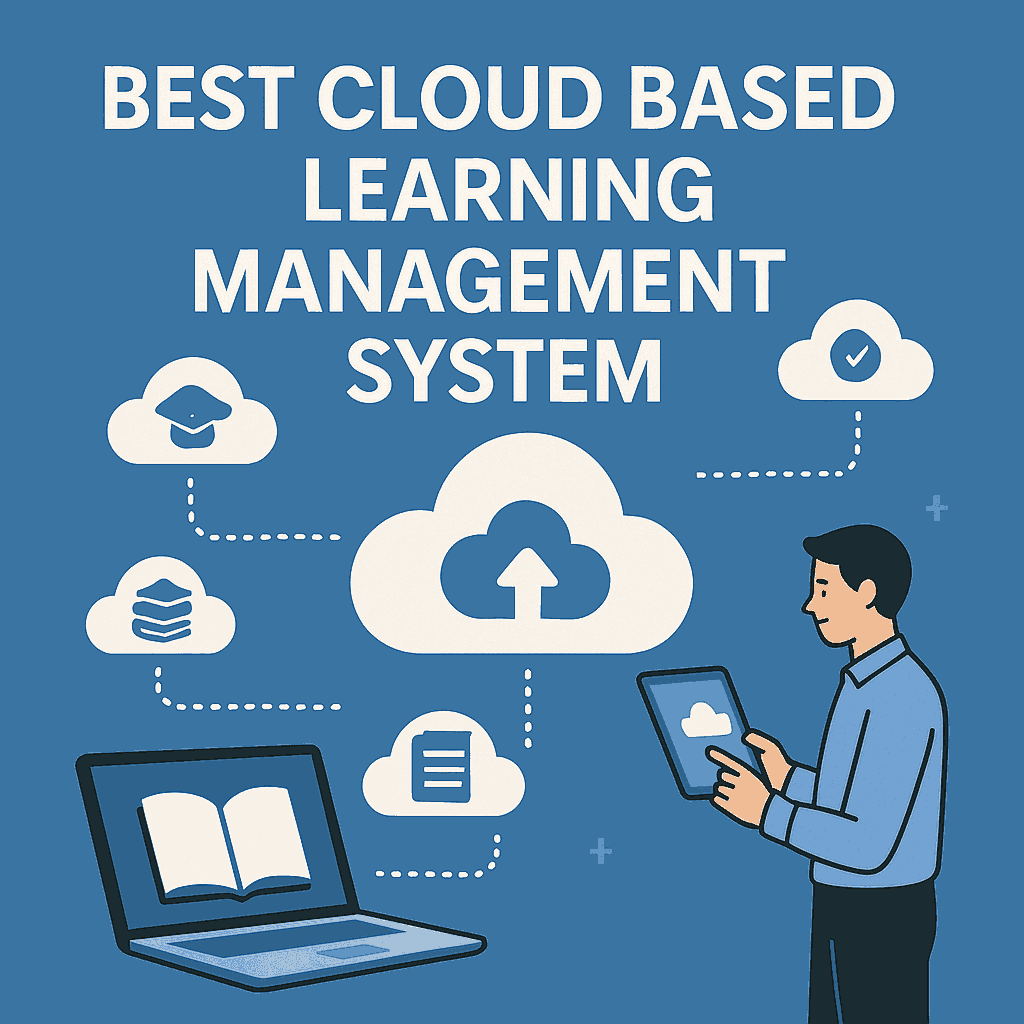
In today's digital connected world, learning is no longer limited to classrooms or office walls. Changes towards remote and hybrid education have made a cloud-based learning management system for schools, universities and businesses. Whether you are training employees in global offices or delivering courses to students from multiple places, cloud -based LMS systems give you the flexibility, scalability and access to the demands of modern learning.
The cloud-based learning management system is a digital platform hosted in Cloud, which allows users to create, manage and deliver the educational or training content anywhere. These systems provide a virtual learning environment where instructors, learners and operators can communicate online.
1.Anywhere, Anytime Access
The cloud-based LMS system allows learners and coaches to login from any device to be at home, in office or traveling. All they need is Internet connection.
2.No Hardware or Installation Required
Since it is hosted in the cloud, there is no need for a complex IT infrastructure. Updates, security and backups are managed by suppliers, which reduces the cost of your operation.
3.Efficient Online Course Delivery System
Courses, quizs, assignments and video tutorials can be uploaded and delivered immediately through an intuitive interface, which makes the learning experience streamlined and attractive.
4.Advanced Analytics and Reporting
Track the progress, completion rates and performance trends with real-time dashboards. These features help you optimize your training or educational technique.
5.Scalable Corporate Training Solutions
Whether training 10 employees or training to 10,000 employees, cloud -based LMS systems are smoothly scale - suitable for organizations looking for reliable corporate training solutions.
6.Seamless Integration
Modern LMS platforms are easily integrated with CRMs, video conferencing tools and HR systems and support industry level learning and operations.
7. Personalized Learning Paths
You can customize learning modules for various user groups, categories or student levels, which make the digital education platform flexible and flexible.
| Feature | Learner/Organization Benefit |
|---|---|
| Cloud hosting | No server setup, accessible from any location |
| Online course delivery system | Streamlined content access for all learners |
| Virtual learning environment | Supports remote and hybrid learning models |
| Corporate training solutions | Efficient employee onboarding and skill-building |
| Digital education platform | Centralized content management and analytics |
Educational Institutions: Delivering hybrid or fully online curriculums
Enterprises: Employee onboarding and compliance training
Startups: Scalable training with low overhead
NGOs: Knowledge sharing across locations
Freelance Educators: Hosting and selling online courses
1.What is the difference between a traditional LMS and a cloud-based LMS?
Traditional LMS is installed on local servers, but the cloud-based learning management system is hosted in the cloud, accessible from any device without a complex setup.
2.Is a cloud based LMS system secure for sensitive data?
Yes, modern platforms offer encryption, data backups and user authentication to ensure compliance with safe access and privacy rules.
3.Can cloud-based LMS platforms be used for corporate training?
Of course. Many cloud-based LMS systems offer features specifically designed for corporate training solutions, including compliance tracking, certification and department-specific modules.
4.How much technical skill is needed to use a cloud LMS?
At least. These systems are built for useful with drag-and-drop features, ready-made templates and consumer support to help with and use onboarding and use.
5.Can I track employee or student performance through the LMS?
Yes. Built -in analysis tools provide real -time tracking of course progress, quiz results and engaging levels - help you easily evaluate effectiveness.
The cloud-based learning management system provides permeability, flexibility and efficiency required for modern learning. Whether you are offering remote training to your task or giving courses to students worldwide, cloud -based LMS systems simplifies administration, enhances engaging and measures as your needs grow.
 Shashidhar
Shashidhar
Copyright @2020. All Rights Reserved by WEB DIGITAL MANTRA IT SERVICES PVT LTD
Post Reviews